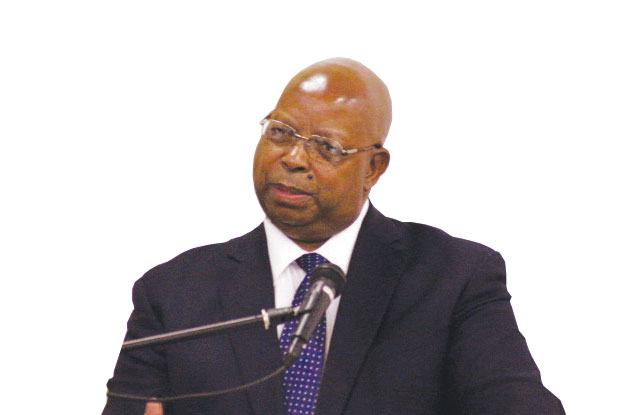By Patricia Mashiri and Joyce Mukucha
The Zimbabwe Women’s Parliamentary Caucus (ZWPC) has launched a 50/50 Advocacy Campaign and Manifesto which seeks to spell out their situation and build on the earlier progress made towards gender equality.
The manifesto calls for recognition of women’s demands and government’s accountability in advancing gender equality in line with the Sustainable Development Goal5 (SDGs).
As the 2018 harmonised elections are approaching, ZWPC has come up with the manifesto as a way of improving women’s participation as voters and more importantly as candidates so as to ensure that women are well represented in Parliament.
The campaign was launched on 6 March 2018 in the capital under the theme ‘Constitutionalism, Gender Equality and the Future of Women’s Leadership in Zimbabwe.’
The Speaker of Parliament, Advocate Jacob Francis Mudenda, who was the guest of honour said the 50-50 Advocacy campaign was a great step towards achieving equality between men and women. He urged women to work hard to achieve gender parity.
“Women must rise up and fight for gender parity not only in the Parliament but in all spheres of life. All women must be embraced but they can only be recognised if they come up and fight for themselves. It can only be an election for women if they participate in them. Globally, women continue to be underrepresented but I’m hoping that this 50/50 campaign will ensure that there is gender balance,” Mudenda said.
He reitrerated that in as much as women and economic development was concerned, there was a lot which needed to be done to make sure that they stand for their rights and have access to resources, especially land. Women are looked down upon and are not given opportunities in getting land for agriculture, mining and tourism.
The Women Manifesto says although women constitute more than 70% of the Agricultural population and labour force they have little or no control over the land. Therefore they are calling for government to increase access, ownership and control of agricultural land by women.
Monica Mutsvangwa, theb Minister of State for Manicaland Province and Chairperson of the ZWPC urged women to be strong as they advocate for the 50-50 inclusion in election participation. She added that the Manifesto sought to promote policies that favour women.
“We are here to pave a way forward towards gender parity since the terrain is very unpredictable and rough for women to be recognised. This manifesto’s thrust focuses on upgrading women. As ZWPC, we are committed to work as well as support the capability of women. In our country, we want more councillors to be women because they are less corrupt and transparent in their work.
“The campaign has policies which seek to empower women in decision making. It is not only for the women in Parliament but to all who those want to campaign. Let’s go and spread the gospel of empowering one another and build a brighter Zimbabwe,” she said.
Women have been disadvantaged for centuries and a majority of them do not have access to justice. They have always been underrated, treated as minors or second class citizens which is a main issue the Women Manifesto is seeking to address.
According to the Beljing Platform for Action 1995, without the active participation of women and the incorporation of women’s perspectives at all levels of decision making, the goal of equality, development and peace cannot be achieved.
The women are tired of the patriarchal society and male chauvinism hence they now need to be included in decision and policy making so that their interests are taken into account.
